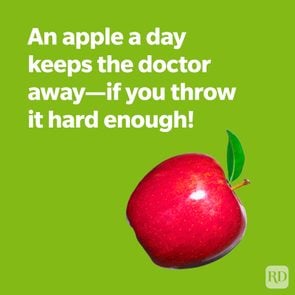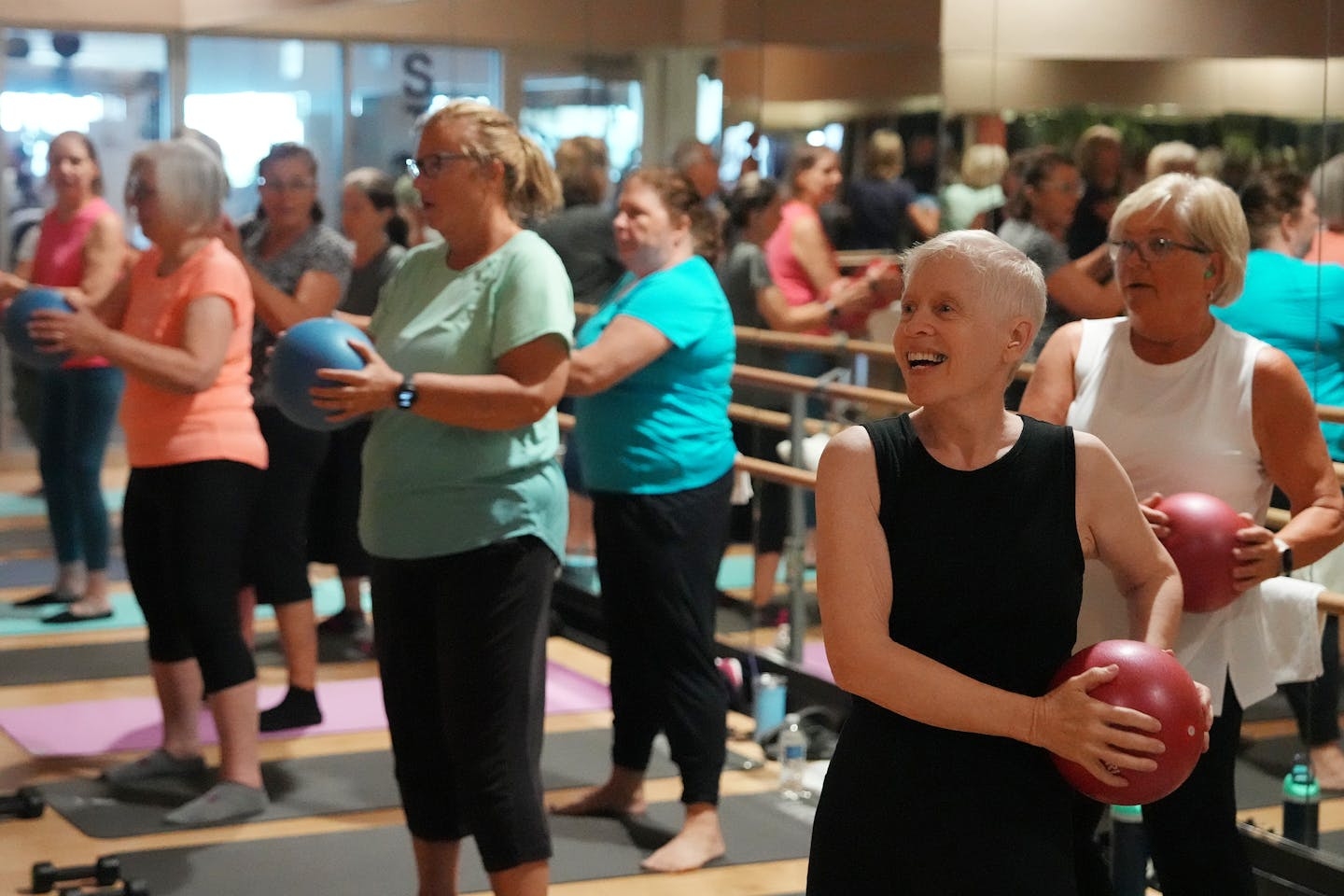60 Hilarious Aging Jokes That Lighten the Load
The Joy of Aging and the Power of Laughter
Aging is often seen as a challenge, but it can also be a source of humor and joy. Approaching old age with a lighthearted attitude can make the experience more enjoyable and less daunting. Joking about the various health and life challenges that come with aging can help reduce the stress associated with growing older. In fact, laughing is not only fun but also beneficial for your health. Studies have shown that laughter therapy can improve mental well-being and reduce feelings of loneliness among older adults.
Research published in the European Heart Journal in 2023 found that patients with coronary artery disease who watched comedy sessions experienced greater benefits compared to those who watched documentaries. Even terminally ill cancer patients are encouraged to engage in laughter as a form of therapy. Laughter helps lower cortisol levels and improves overall mental health, making it a powerful tool for anyone navigating the aging process.
The Benefits of Old-People Jokes
Having a collection of old-people jokes can be a great way to bring joy and laughter to any situation. These jokes not only provide entertainment but also serve as a reminder that aging doesn’t have to be a negative experience. From short jokes that deliver quick chuckles to one-liners that can make you the star of any party, there’s something for everyone. Whether you’re looking for a good laugh or simply want to share some humor with friends and family, these jokes are sure to bring smiles.
Here are some of the funniest old-people jokes:
-
What’s the secret to having a smoking hot body in old age?
Cremation. -
What is a prize old people can win for aging?
Atrophy. -
What’s the best part of old age?
That it doesn’t last very long. -
Which underwear brand do seniors love best?
It Depends. -
Why do old people love English muffins so much?
Because of the nooks and grannies. -
How is the moon like dentures?
Both come out at night. -
What goes up but never comes down?
Your age! -
Where can single men over 65 find younger women who are interested in them?
In the bookstore, under “Fiction.” -
Why should you marry someone older than you?
As your looks fade, so will their eyesight. -
Why do retirees smile so much?
Because they can’t hear a word you’re saying.
Positive Jokes About Aging
Not all jokes about aging are negative. Some highlight the positive aspects of growing older:
-
These are not gray hairs! They are wisdom highlights.
-
Old age makes us great multitaskers. Why, I can sneeze and pee at the same time!
-
You’re not getting old; you’re becoming a classic.
-
Old age is a heck of a lot better than the alternative.
-
Stop thinking of them as “hot flashes.” Think of them as your inner child playing with matches.
-
One benefit of old age is that your secrets are always safe with your friends … because they can’t remember them!
-
Age is an issue of mind over matter. If you don’t mind getting older, then it really doesn’t matter.
Jokes for Seniors About Marriage and Family
Marriage and family life can also be a source of humor, especially as we age:
-
Of all your children, the only one who won’t grow up and move away is your husband.
-
I always wanted to marry Mrs. Right. I just didn’t know her first name would be “Always.”
-
An old woman is sitting at a bar when an older gentleman sits down beside her. “So,” he says, “do I come here often?”
-
My doctor told me I need to sweat daily, so I told him I’d start disobeying my wife.
-
My husband cooks for me like I’m a goddess—by placing burnt offerings before me.
-
Bickering with your spouse is like trying to read the Terms of Use for a new service. In the end, you just give up and click “I agree.”
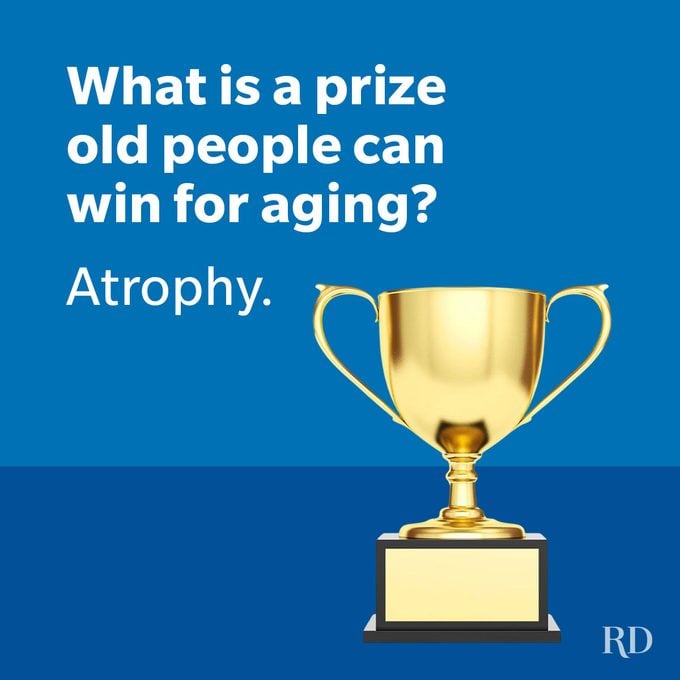
Old-People Jokes About Retirement
Retirement brings its own set of challenges and opportunities for humor:
-
You know it’s time to retire when your co-workers are wearing clothing from your youth and calling it retro.
-
The truth is, retirement kills more people than hard work ever did.
-
Retirement is wonderful. It’s doing nothing without worrying about getting caught.
-
My company recently gave me an aptitude test, and I found out the work I was best suited for was retirement.
-
Retirement is what happens between doctors’ appointments.
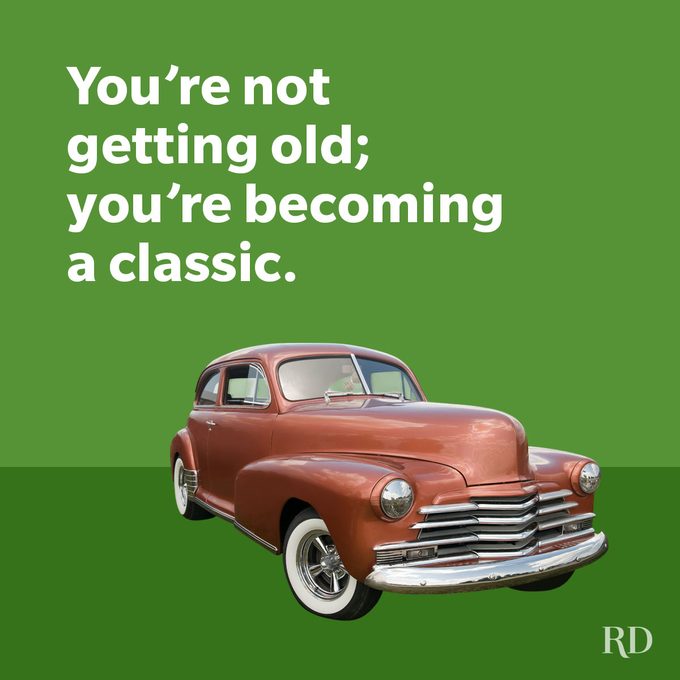
Funny One-Liners About Aging
These one-liners capture the essence of aging with a touch of humor:
-
You know you’re getting old when your birthday cake is a fire hazard.
-
I used to know a couple who grew fruit trees together. They lived to a ripe old age.
-
If I ever decide to buy a horse ranch in my old age, I’m going to name it Pasture Prime.
-
I called the incontinence hotline recently. They asked if I could hold.
-
You know you’re getting old when your doctor refers you to an archaeologist.
-
The older we get, the earlier it gets late.

Why Trust Us
Reader’s Digest has been telling jokes for more than 100 years, curated and reviewed over the last 20 years by Senior Features Editor Andy Simmons, a humor editor formerly of National Lampoon and the author of Now That’s Funny. We’ve earned prestigious ASME awards for our humor—including comical quips, pranks, puns, cartoons, one-liners, knock-knock jokes, riddles, memes, tweets and stories in laugh-out-loud magazine columns such as “Life in These United States,” “All in a Day’s Work,” “Laughter, the Best Medicine” and “Humor in Uniform,” as well as online collections such as short jokes, dad jokes and bad jokes so bad, they’re great. You can find a century of humor in our 2022 compendium, Reader’s Digest: Laughter, the Best Medicine.
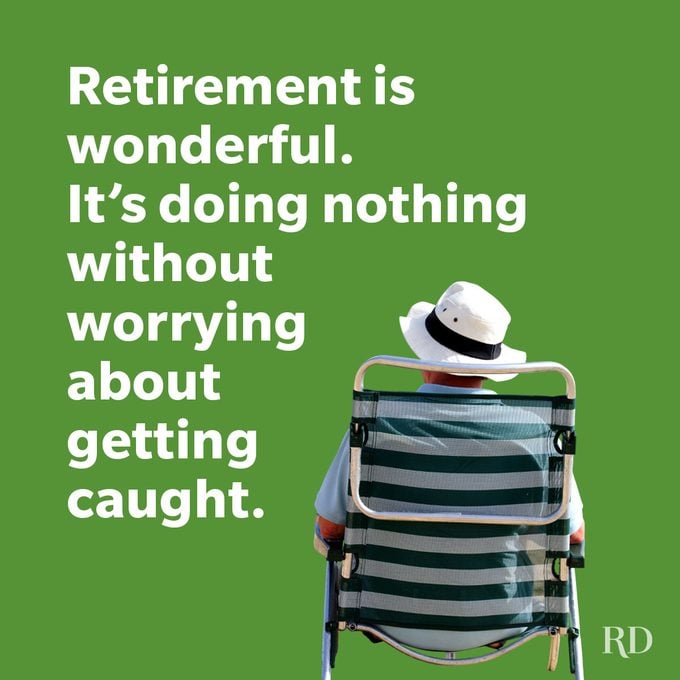
Short Jokes Anyone Can Remember
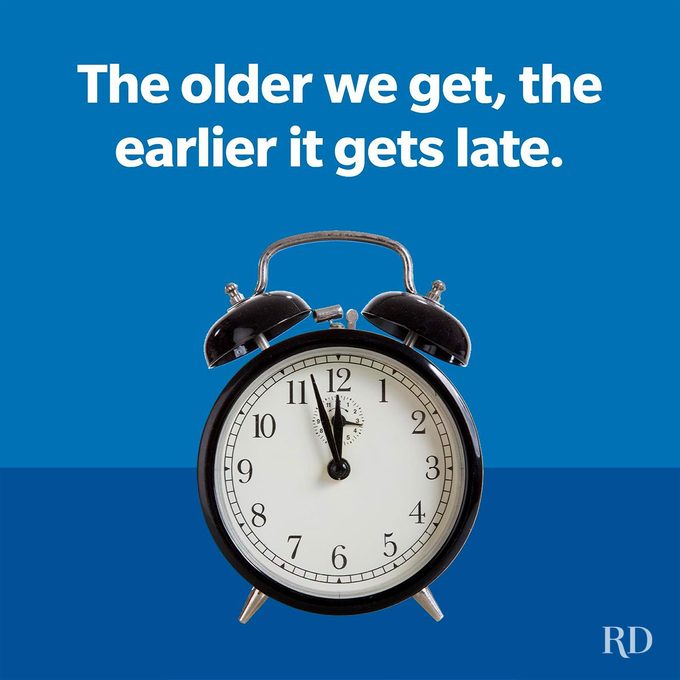
The Funniest Sayings Worth Memorizing

Morbidly Hilarious Last Words
